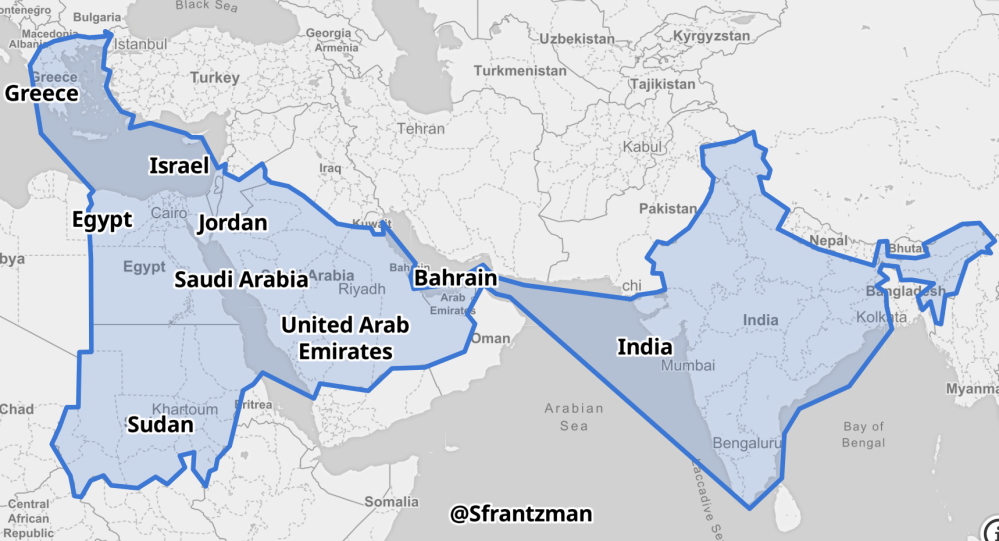
By SETH J. FRANTZMAN
A new alliance system in the Middle East is emerging.
A WORKING PAPER
The recent Israel peace agreements with the United Arab Emirates and Bahrain have enabled the growth of a series of connections between states that share regional and strategic interests. This builds on existing ties. The new alliance system is not only one that unites countries against adversaries, such as some shared concerns about Iran or about Ankara’s current aggressive posture in the Eastern Mediterranean. It is also about wider strategy that links economic interests and security ties.
This new system is built on several existing alliances.
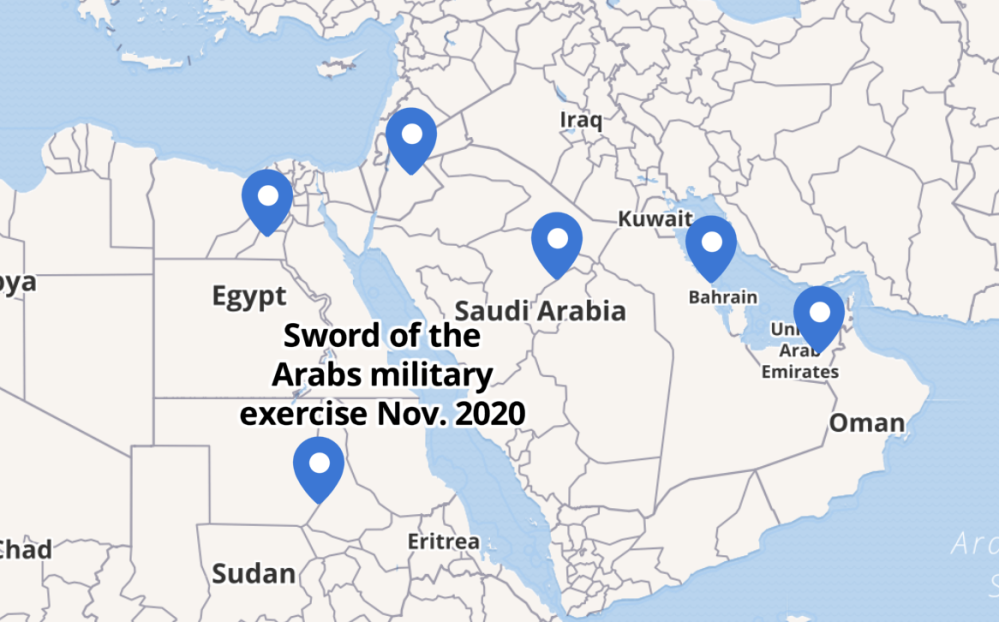
The Gulf, the ‘Sword of the Arabs’ training and Qatar crisis
The Gulf state system, led by Saudi Arabia, has included the Gulf Cooperation Council. This group includes Saudi Arabia long with Bahrain, the UAE, Kuwait, Oman and Qatar. However the Gulf crisis of 2017 led to a break between Saudi Arabia and its close allies in Abu Dhabi and Manama, and Qatar. This accelerated a process that links Qatar to Turkey and their shared support for groups like Hamas and others linked to the Muslim Brotherhood. Unsurprisingly Riyadh and its allies, such as Egypt, have banned the Brotherhood and have encouraged countries like the US to label it a terrorist organization. Turkey-Saudi relations continued to sour in 2018 and 2019.
In addition Riyadh led its allies into Yemen to oppose the Iranian-backed Houthis. This has led to Houthi attacks on Saudi Arabia, including energy infrastructure near the UAE and also the Abqaiq facility. These same states have interests in Iraq and the Arar border crossing reopened after decades of closure.
Oman has sought to be a mediator with Iran, and has also hosted Israel’s Prime Minister Benjamin Netanyahu in 2018. Meanwhile Kuwait has tended to be more open to dialogue with Qatar. Jordan, which has colder relations with Netanyahu, seeks close cooperation with the Gulf. For instance the king of Jordan was in Abu Dhabi on November 17 along with the king of Bahrain. Bahrain, Saudi Arabia, Sudan, Jordan and the UAE sent soldiers to Egypt for a week-long training, dubbed Sword of the Arabs, at the end of November 2020.
Since May 2019 there have been increasing tensions with Iran, including the mining of six ships off the coast of the UAE and Oman in May and June 2019. A US drone was downed. US Secretary of State Mike Pompeo has made high profile visits to the region, along with Washington’s envoy Avi Berkowitz, who flew with the Bahrain Foreign Minister to Israel on November 17.
Pompeo was in the Gulf on August 23 and in Greece at the end of September, sketching out this emerging alliance system through his trip, which included Sudan. He has condemned Iran’s aggressive actions during these trips and the US State Department condemned Turkey for hosting Hamas leaders twice this year. This all built on the May 21, 2017 summit that Trump held in Saudi Arabia, prominently meeting with the King of Saudi Arabia and Egypt’s leader Abdel Fatah al-Sisi.
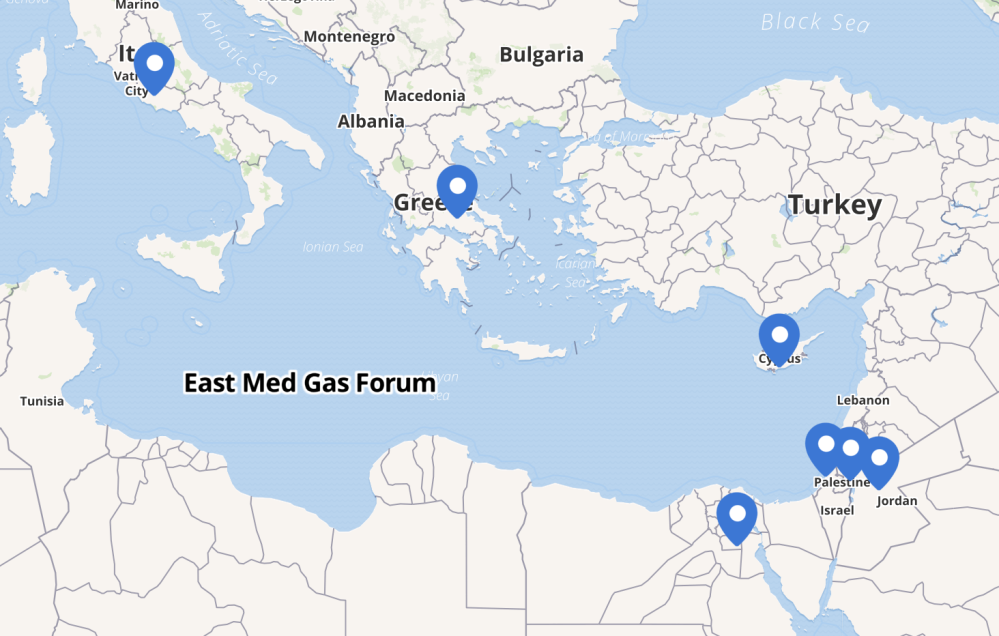
The Greece-Israel-UAE connection
Israel, Egypt, Jordan, Cyprus and Greece entered into closer partnership through an East Med Gas Forum that was created in the summer of 2020. The gas forum builds on decisions by Israel, Greece and Cyprus to build a pipeline. In addition Israel took delivery in November 2020 of new class of Sa’ar 6 corvette ships to protect its exclusive economic zone. In development for years the ship’s arrival also comes amid tensions between Turkey and Greece and also Israeli assessments that Turkey is a potential looming threat.
Greater military connections between Israel and Greece, as well as the UAE and Greece go hand-in-hand with the emerging ties. In August the UAE sent F-16s to train with Greece. The Prime Minister of Greece came to the UAE on November 17 and signed an agreement cementing ties. It looks to lay the groundwork for more joint training. In May 2020 Egypt, the UAE, France, Greece and Cyprus also condemned Turkey’s aggressive moves. Turkey has been shipping weapons to Libya and has had incidents at sea with France and Germany. It has also used Navtex notifications to harass Greece throughout the spring, summer and fall of 2020. Turkey also is pushing Northern Cyprus to take a more hard line.
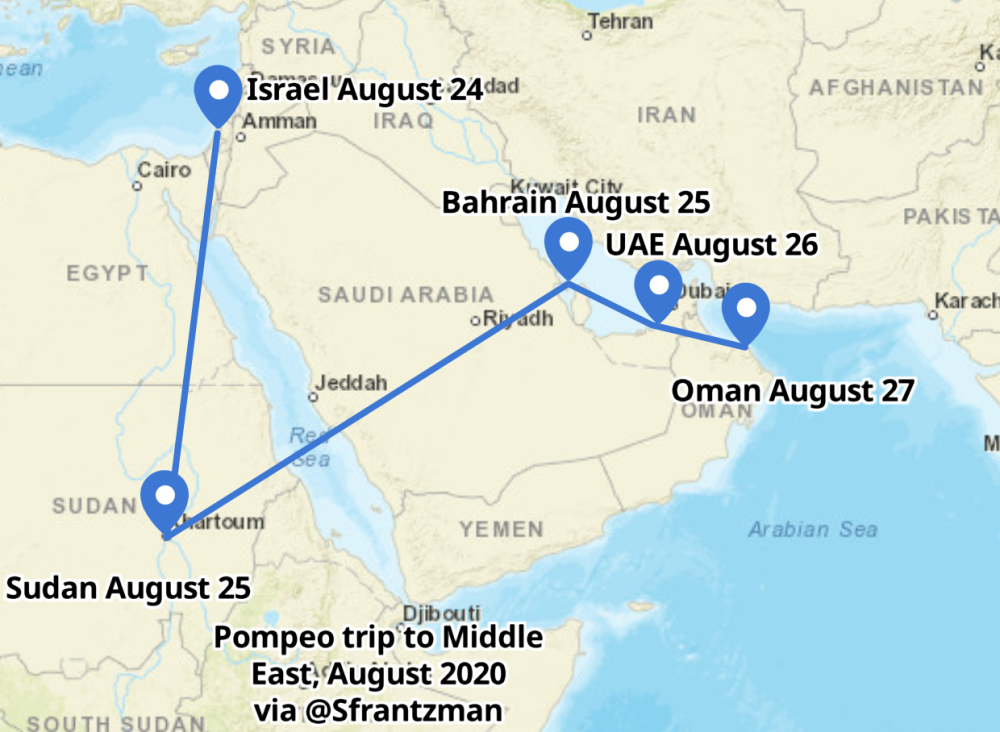
F-35s can seal the deal
The US and Israel did three joint trainings this year with F-35s and the US wants to sell F-35s to the UAE, potentially creating an F-35 alliance. The joint drills included US F-35s flown from Dhafra in the UAE and were called enduring Lightning. The US has decided not to send F-35s to Turkey and a potential UAE deal could bring Abu Dhabi and Israel closer. This could also mean more joint exercises, such as the Iron Union drill.
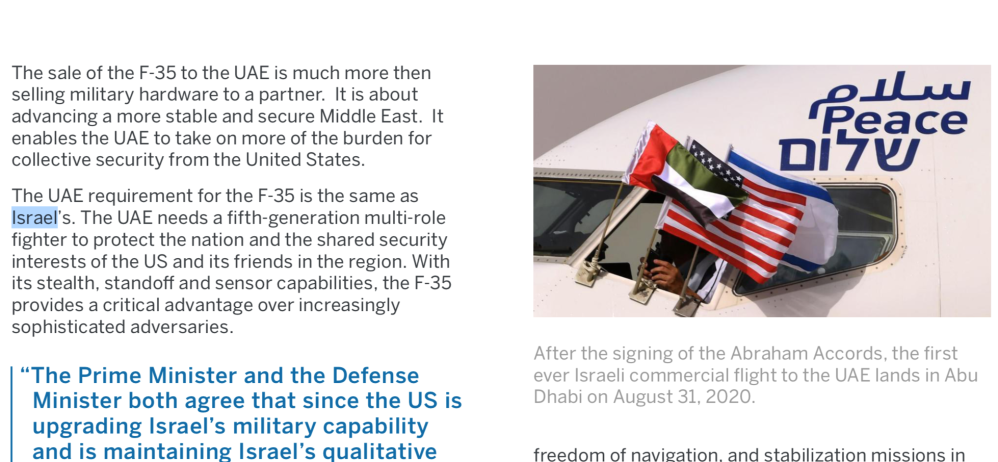
India’s role
Between 2017 and 2020 Israel and India have become increasingly close as strategic partners. This dovetails with close relations that India enjoys with the UAE. India’s External affairs minister S Jaishankar said he will travel to Bahrain, the United Arab Emirates (UAE) and Seychelles during November 24-29, his first visit to the extended neighbourhood amid the Covid-19 pandemic to boost bilateral cooperation. This important symbolic visit, as well as articles discussing greater strategic ties between India, Israel and the US and how the UAE deal could increase India-Israel-UAE ties shows that India is an important partner in the new strategic corridor.
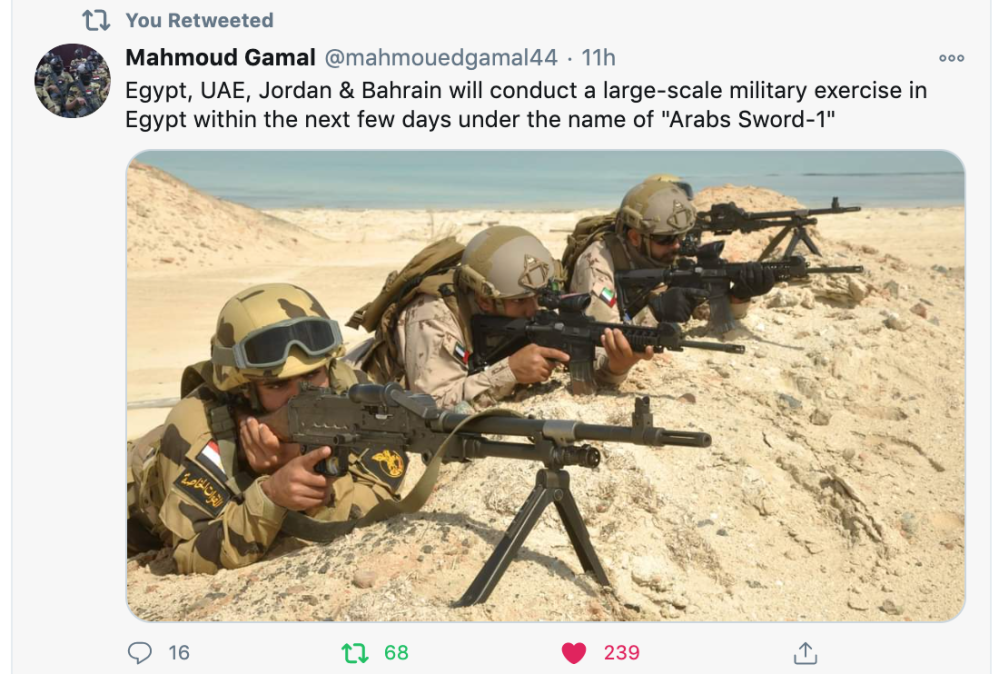
The alliance that is emerging links economies and shared regional strategic. These countries are all close partners of the US. India and the United States signed an agreement in October during Pompeo’s visit, for instance. Washington has been withdrawing forces from the region an d wants to shift to focus on near-peer rivalries, meaning locals must do more to work together and defend themselves. These countries are not on the same page on every issue. India is more open to Iran. Egypt has grown closer to Russia. It is not clear if these countries might do more work with the Kurdistan Regional Government or support the US role in eastern Syria. However on many big issues, they want to work together. Saudi Arabia lacks official relations with Israel. Jordan does not have amicable relations with Netanyahu. The Palestinians only returned envoys to the Gulf in mid-November. However a trip by Netanyahu to Saudi Arabia on November 22 shows that much is new and possible.
